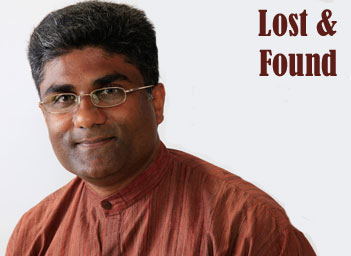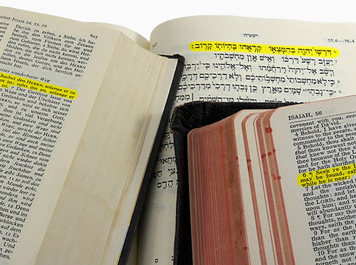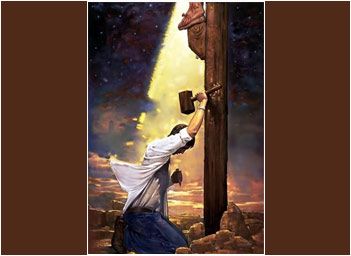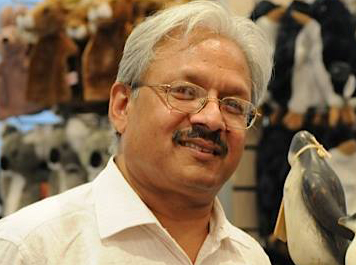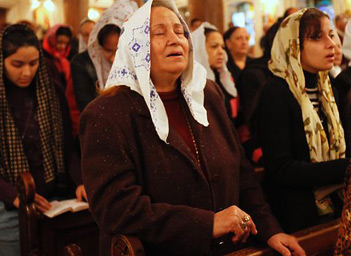By Mathews George
For he himself is our peace, who has made the two one and has destroyed the barrier, the dividing wall of hostility Ephesians 2:14
I grew up in a church in India that had conflicts for several hundreds of years. The conflicts are going on to this day. Every year, the church spends tons of money hiring the best lawyers and fighting battles they cannot win. This church thrives on disharmony, exploiting sentiments of hatred among brothers, driving people literally to street fights. Even their shepherds shy away from being united and thrive in disunity, directly turning their backs at the gospel of Christ.
Even among the so-called peaceful churches there is division, between the rich and the poor, between the dark skinned and light skinned, between men and women, those drawing higher salaries and those who don’t. To top it all, caste prejudice continues to plague some of our communities. This kind of segregation is becoming more common in all churches, both in the east and the west.
Some may argue that it may be out of our purest intentions that we tend to be friendly and inviting with people whom we like or who are like us. We call this ‘birds of the same feather syndrome’. However, when we do that we need to be careful not to alienate people who are different, who are struggling for someone to recognize them, who are not knowledgeable in the scriptures as some others, who come from a segregated background…the very people whom Christ has commissioned us to reach out to.
Jesus’ prayer in John 17 (that they all may be one) wasn’t ‘just’ a prayer. It was a prayer Jesus prayed knowing that His work on the cross would break down barriers and unite all.
When Christ knocked down the opposition to unite all believers in one family, all human barriers such as age, appearance, intelligence, political persuasions, economic status, race and theological perspectives are broken down and we are unified in Christ.
As believers we are ‘united in Christ’ and this is one reality that keeps Christianity on a higher pedestal when compared with other faiths.
This was a revolutionary concept back then in the early church; it still continues to be revolutionary in today’s church. All along, we see Paul argue this fervently. In essence he says ‘Listen folks, Christ has destroyed the barriers that people build between themselves and that we have real unity with people who are not like us.’
There is no longer Jew or Gentile, slave or free, male and female. For you are all one in Christ Jesus (Galatians 3:28).
Paul took the greatest divisions of that day and proved how Christ had integrated those polarities to make people one entity. This is profound teaching. How I wish we take this radical teaching into our churches.
In Colossians, he argues “Here there is no Greek or Jew, circumcised or uncircumcised, barbarian, Scythian, slave or free, but Christ is all, and is in all.”
My friends, this is not just a an theoretical understanding of unity but a physical, intellectual and spiritual reality of what Christ’s death has achieved for us and we as believers are called to practice. Christ is all and in all.
It will take an abundance of His mercies and grace for us especially in India to assimilate this truth because we have a legacy of being one of the most segregated societies in the world, deep routed in generation of class structure. Even today, we battle with this legacy. But our Lord will strengthen us to break free from this chain.
So as mentioned earlier in Ephesians, Jesus is our peace. For He himself is our peace, who has made the two groups one.
According to Paul, true peace is oneness. It is not merely the cessation of hostility or the absence of conflict, it simply means being one. The concept is simply this: ‘One new man out of the two.’
So when the whole world defines peace as the absence of war, we in faith take it a step further and say real peace is not the absence of war but the presence of Jesus – through which the creation of a new person has taken place. As Paul says, “His purpose was to create in Himself one new humanity out of the two, thus making peace.”
Let us pray that our Father will challenge our hearts to help us accept this reality of our Christian existence. Early Christians called themselves a ‘third race’ or a ‘new race.’ Early Christians recognized that they were neither Jews, nor Gentiles but one new person embracing all who are in Jesus. Let’s be that ‘new person’. Church wake up, it’s time we united in Christ!
Rev. Mathews George is a pastor at Tucker Street Church in Greater Memphis Area in the US. He has mentored many people around the United States and India. He believes that only in understanding and accepting Jesus into lives true healing takes place. He can be reached at his email ID: mathewsown [at] gmail [dot] com



